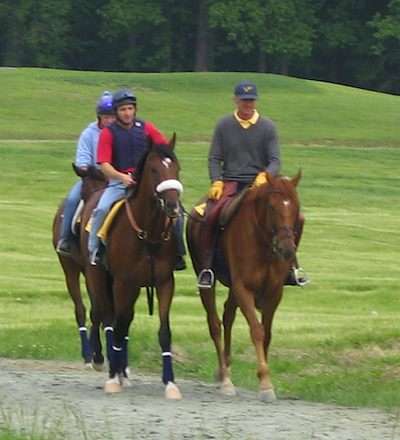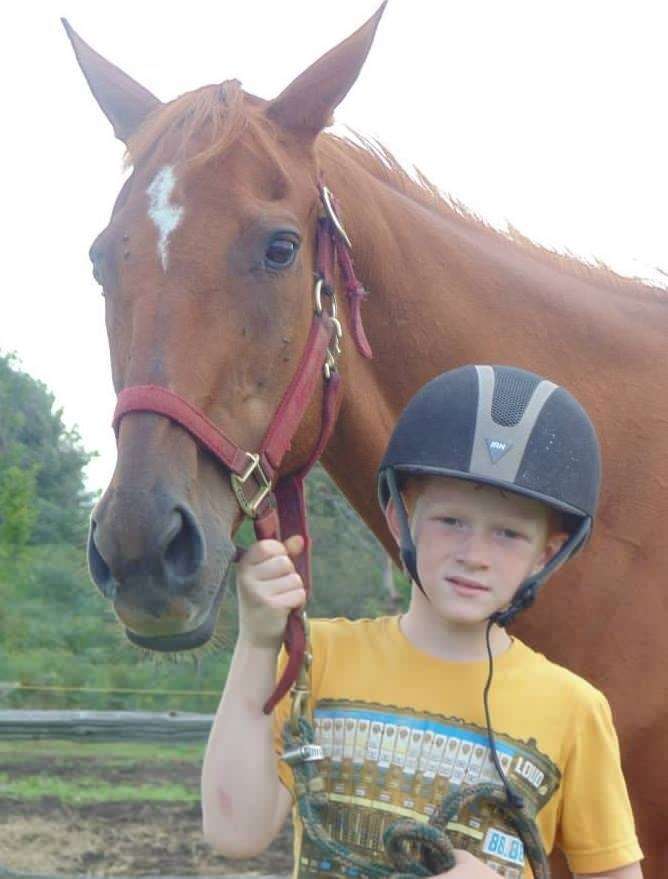Last year, Afleet Alex made our hearts skip a beat and then leap for joy when he fell to his knees and then miraculously sprang back into action to win the Preakness. This year, Barbaro has touched our hearts after breaking his leg in the opening furlongs of the same race. And, perhaps because horses, like humans themselves, possess both majesty and fatal frailties, both Alex and Barbaro have made us want to believe in miracles. (It might be remembered that team Afleet Alex gave a percentage of his winnings to Alex's Lemonade Stand, a charity that raises money to fight children's cancer, further endearing him to all.)
I read a letter to the editor of The Baltimore Sun admonishing those concerned with the injured racehorse and chastising the newspaper itself for spilling so much ink over the recent crisis. "It's just a horse that broke its leg," the writer insisted.
But, fans of all ages, backgrounds and degrees of knowledge concerning horseracing see it differently, and their sentiments are being delivered in a deluge to the Hospital for Large Animals at the University of Pennsylvania. . .
They've brought homemade signs expressing prayers and well wishes, then tacked them to the fences that line the entrance of the center: "We Love You, Barbaro. Believe in Miracles. Beat the Odds"
"I think it's a wonderful thing, a positive thing for racing if some good can come out of it," Barbaro's owner, Roy Jackson, said Tuesday, according to MSNBC.
Anyone who believes that the situation with Barbaro involves nothing more than "a horse that broke its leg" understands little of the symbolic nature of life and how animals can evoke feelings in us that we can sometimes otherwise have difficulty getting at–but, once we have discovered such feelings in ourselves, we find them easier to transfer to each other.










Be the first to comment